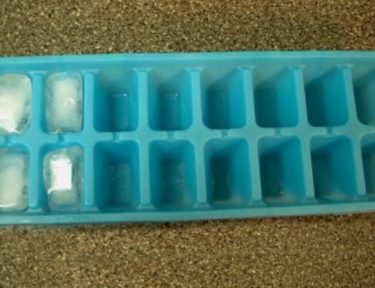Woman Suffers Seizure and Dies After Making Fatal Error with Her Neti Pot
A Seattle woman incurred a rare infection from an amoeba after using a neti pot, and it turned out to be fatal. The 69-year-old is said to have suffered from the infection for nearly a year before doctors caught it.
Typically, the neti pot is filled with sanitized water and/or a sterile saline solution to flush out the sinuses. It is believed the woman used Brita-filtered tap water in the device and spurted the water into her nasal cavity, unknowingly sending disease-causing organisms into her system.
Her case was published in the International Journal of Infectious Diseases following her death last year. The unidentified patient came into the emergency room after a seizure and at first, doctors at Swedish Medical Center thought the lesion showing up on a scan was a tumor.
It was during surgery that they realized it wasn’t the case. One of her surgeons stated this:
“When I operated on this lady, a section of her brain about the size of a golf ball was bloody mush. There were these amoeba all over the place just eating brain cells. We didn’t have any clue what was going on, but when we got the actual tissue we could see it was the amoeba.”
She died a month after surgery. Researchers learned that since 1974, there have been 109 cases of this amoebic infection in the U.S. with the majority of them being fatal. Although officials were not able to test this woman’s water, it was noted that parts of Washington state may use freshwater sources such as wells for their water source.
Experts say that amoeba can’t survive in city-treated water and the type that this woman contracted is extremely rare. However, doctors are urging neti pot users to be aware of the potential for contamination. They best way to do that is by following the directions on the product’s packaging and using only a sterile solution when injecting it.
There have been other cases of amoeba infections in the country but not the same species of organism that was identified in this case. Either way, scientists are concerned that the prevalence of the bacteria could increase due to warmer conditions in the U.S. that are typically seen in Central and South America.
Symptoms of an infection can vary and may look like a common, unrelated condition, so it can be hard for doctors to detect if it is slow-moving. Such was the case with this woman. Researchers searched her medical records and found she reported a sore on her nose after using the pot, but it was diagnosed as rosacea.
In hindsight, it is possible it could have been a sign. Neti pots have been in use for a long time are very effective for those with sinus problems or allergies. Here in the U.S., the FDA warns that while the devices themselves are safe, users should care for and use the pot properly to avoid problems.
Remember to clean it properly and to irrigate the nose with only a saline solution or sterile water that has been boiled or distilled. Click below to learn more about this woman’s infection and amoeba.
Do you use a neti pot? Were you aware that amoeba infections were a remote possibility? Were you familiar with this woman’s case?
Sources:




